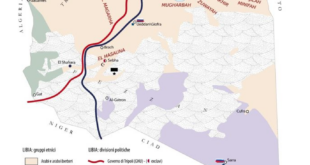 AZEFFOUN, Algeria (Reuters) – It looks like any Mediterranean resort: Young women in bikinis frolic in the surf and old folk doze under parasols in the baking heat.
AZEFFOUN, Algeria (Reuters) – It looks like any Mediterranean resort: Young women in bikinis frolic in the surf and old folk doze under parasols in the baking heat.
There is no visible hint of north Africa’s war against Islamist militants.
But visitors to the beach at Azeffoun sometimes get an audible clue to the kind of bloodshed that killed eight people on the Algerian coast on Saturday and prompts embassies to warn travellers to stay well away from Algeria’s Kabylie region.
The boom of combat between Islamist rebels and the army occasionally echoes over the pretty, pine-clad hills shimmering in the heat above this beach 120 km (75 miles) east of Algiers.
The region is the main battlefield between the government of the OPEC member state and an al Qaeda arm whose suicide attacks have made it the Maghreb’s most menacing militant force.
In the latest attack, a suicide car bomber killed eight people on Saturday evening in the coastal town of Zemmouri just a couple of hours drive along the shore from Azefoun.
More than 150,000 people have been killed in fighting since the military-backed authorities in 1992 scrapped a parliamentary election that radical Islamists were set to win.
The killing has fallen off sharply in recent years, but much of the residual violence takes place in Kabylie, a mountainous, forested bastion of the country’s non-Arab Berber minority.
More remarkable than the presence of visitors in such a volatile region is the nonchalant response when war makes its presence felt among the merrymakers cavorting on the shoreline.
“WE HEARD THE BOMBING”
Most visitors carry on toasting themselves in the sun, just like the war-hardened locals. The visitors are Algerians, since foreign tourists are rare here, as elsewhere in Algeria.
Local resident Admane Akli, 71, recalled a day in June when helicopters appeared in the mountains and the sound of the bombing echoed to the beach.
“Some holidaymakers were afraid and left the beach, but most of them stayed here,” he said, pointing his finger in the direction of the mountains.
“Life goes on. The terrorists cannot stop us from living our lives. It is a peaceful place here, and everybody knows everybody in the village. There are no terrorists here, and if they dare to disturb us we will chase them.”
Outsiders might regard that attitude as foolhardy.
But the determination of local people to enjoy the unspoilt coastline is rooted in a need for respite, however hazardous, from a miserable array of security, social and economic woes.
Algerians complain of a deteriorating social climate marked by joblessness and chronic poverty even as the coffers of the state fill up with the revenues from oil and gas exports.
Poverty persists because Africa’s second-largest country is struggling to reform a Soviet-style command economy blighted by red tape, graft, inadequate credit and a weak private sector.
Young and old feel the same about the need to unwind. Karim Mehlel, 17, as an attendant at the parking lot of Azeffoun’s “Central Beach”, makes no apology for ignoring the war.
“Look at the beach, look at the people, look at the girls,” he enthuses. “They are happy to be here, very happy.”
“I’M HAVING FUN”
Speaking a day after an al Qaeda suicide bomber wounded 25 people including four policemen in the Berber-speaking region’s main town of Tizi Ouzou, Mehlel said his mind was on having a good time and earning a decent living, not on war.
“Frankly, I’m not aware of the suicide attack… I’m having fun, and that’s all I care about right now,” he said.
The risks are real. Al Qaeda’s north Africa wing, or the former Salafist Group for Preaching and Combat, finds Kabylie a suitable base because it can hide in its remote terrain.
To get to Azeffoun, visitors have to drive along roads that snake between steep-sided mountains where security forces and Islamist rebels have fought and ambushed each other for years.
Politics has also entrenched al Qaeda in Kabylie. Many local Berber people resent the Arab-dominated central government and have long agitated, sometimes by force of arms, for autonomy.
At the height of the 1990s war between Islamists and the army, Azeffoun saw a drop in visitor numbers, such was the intensity of the killing.
But security has improved, in part because of the return of the once-hated gendarmerie to parts of the region.
In 2002 the government pulled the gendarmerie out of Kabylie after Berbers revolted in 2001 in protest at what they saw as brutality inflicted by the paramilitary force.
The resulting security vacuum helped the Islamist rebels deepen links to organized crime gangs. But that may be changing.
Now Djaafar Amahnoun, 20, thinks of business, not security. He runs a small shop at the “Petis Paradis” Beach, selling cigarettes, chocolate, juice, popcorn and swimsuits.
“There are more than 1,000 vehicles parked already, and at least 10,000 people are on the beach,” he said approvingly.
“They want to forget the pressure and the stress of the cities. In my village, we are safe 24 hours a day,” he said.
A 35-year-old Azeffoun resident who declined to be identified said of the gendarmes: “As long as they protect the people and do not beat them up, they are welcome.”
 Eurasia Press & News
Eurasia Press & News

